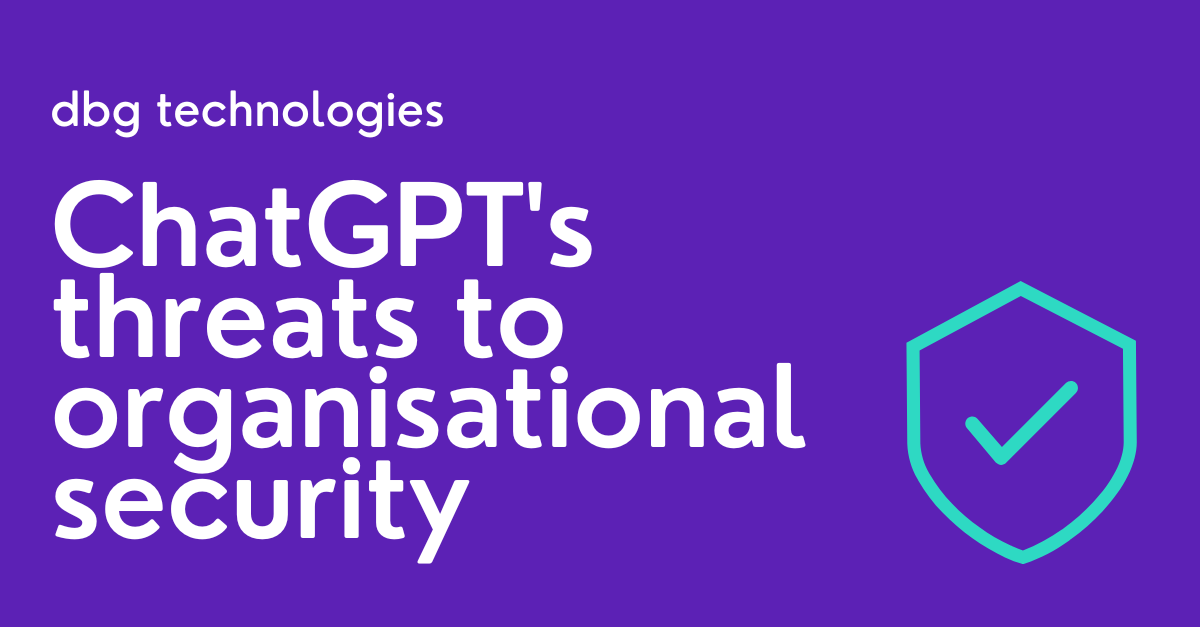 AI-powered tools like ChatGPT, developed by OpenAI, have proven to be revolutionary in enhancing productivity and communication, however the integration of such technologies also presents risks, particularly when it comes to data security and privacy.
AI-powered tools like ChatGPT, developed by OpenAI, have proven to be revolutionary in enhancing productivity and communication, however the integration of such technologies also presents risks, particularly when it comes to data security and privacy.
Recent reports of Apple’s decision to restrict internal use of AI tools like ChatGPT and GitHub Copilot highlights the growing concerns surrounding employee data misuse and underscores the company’s recognition of the potential threats these tools pose to data privacy and security within their organisation. By limiting access to such tools, Apple is taking proactive measures to mitigate the risks associated with employee data misuse.
While AI tools like ChatGPT are designed to assist and enhance human capabilities, they also present potential avenues for data mishandling. Employees who have access to these tools may inadvertently or maliciously misuse sensitive organisational information, leading to severe consequences for both individuals and companies. Some of the dangers arising from employee data misuse include:
Breach of Confidentiality
ChatGPT can process vast amounts of data, including proprietary information, trade secrets, and customer data. In the wrong hands, such data can be exploited or leaked, jeopardising an organisation’s competitive advantage and damaging its reputation.
Intellectual Property Theft
By utilising AI-powered tools, employees might extract and store intellectual property without proper authorisation. This could lead to the theft of valuable innovations, patents, or copyrighted material, resulting in significant financial losses and legal repercussions.
Regulatory Compliance Risks
Many industries are subject to strict regulations concerning the handling of personal and sensitive information. If employees misuse data obtained through ChatGPT, organisations may face legal consequences, regulatory penalties, and damage to customer trust.
Social Engineering Attacks
ChatGPT can inadvertently provide insights or clues about an organisation’s internal structure, hierarchy, or potential vulnerabilities. Cybercriminals can exploit this information to orchestrate targeted social engineering attacks, including phishing and spear-phishing campaigns, compromising an organisation’s security.
To safeguard against the dangers associated with employee data misuse, organisations must adopt robust measures. Here are some steps that can be taken:
Strict Access Control
Limiting access to AI-powered tools like ChatGPT to employees on a need-to-know basis helps minimise the risk of data misuse. Implementing strong authentication measures, such as multi-factor authentication, can further enhance security.
Comprehensive Training and Policies
Organisations should provide comprehensive training on data privacy and security best practices. Clear policies and guidelines regarding the appropriate use of AI tools should be established, ensuring employees understand their responsibilities and the potential consequences of data misuse.
Regular Monitoring and Auditing
Employing real-time monitoring and auditing mechanisms can help identify any suspicious or unauthorised activities promptly. Monitoring employee interactions with AI tools can provide insights into potential data misuse and allow for timely intervention.
Encrypted Communication Channels
Organisations should encourage the use of secure and encrypted communication channels when sharing sensitive information. Encryption adds an extra layer of protection to data and ensures that only authorised recipients can access it.
